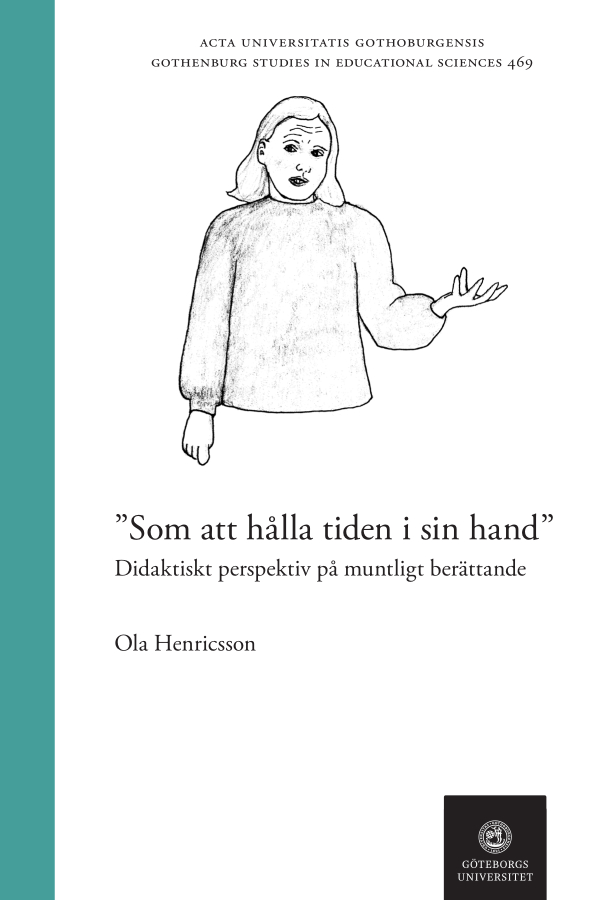Storytelling is deeply interwoven with the act of teaching and learning. Teachers tell stories and anecdotes within their everyday teaching practice. Previous research on teachers’ storytelling in the interdisciplinary field of educational science has focused mainly on language development, literacy, and students’ learning from social, historical and psychological perspectives. In this thesis, the main interest is in the teachers’ perspective and their lived experience of telling stories in teaching situations.
The overall aim of this thesis is to describe the pedagogical implications of teachers’ oral storytelling. Storytelling is contextualized within the framework of teaching - which in turn is understood and discussed within the continental European tradition of didaktik. From this tradition, the concept pedagogical tact is used to illuminate teachers’ storytelling at the intersection of theory and practice.
The empirical data is derived from interviews and video observations. The interviews are contextualized and exemplified through both a Swedish and an Indian context. The analysis of the interviews and observations is based on a phenomenological analysis of storytelling which implies a perspective that sees storytelling as embodied. Four studies were carried out and the findings are presented in four papers.
Overall, the results show that teachers’ storytelling is an everyday phenomenon, both spontaneous and prepared, closely intertwined with their relationship to their students and the content. Since teachers’ experiences of storytelling appear from the data to be spontaneous and reciprocal, such as listening to the listeners, it is suggested here that the pedagogical actions of the teachers can be described as a pedagogical tact – a tact of telling. Another important result which appears in this thesis is the importance of taking the lived body into account in teachers’ storytelling, and this aspect constitutes a contribution to research on teachers’ storytelling. Thus, the teachers’ experience of and knowledge about storytelling and didaktik are crucial for how their students experience the content.
Storytelling as teaching is not completely possible to predict and consequently impossible to fully measure and control. With today’s increased demands for students’ performance to be measurable, teaching that does not lead to measurable results can therefore be seen as carrying a risk of failure. From a continental European didaktik perspective, teachers’ storytelling is, on the contrary, seen as important and as an opportunity - a way of teaching that enables students and teachers to create meanings in relation to content.


